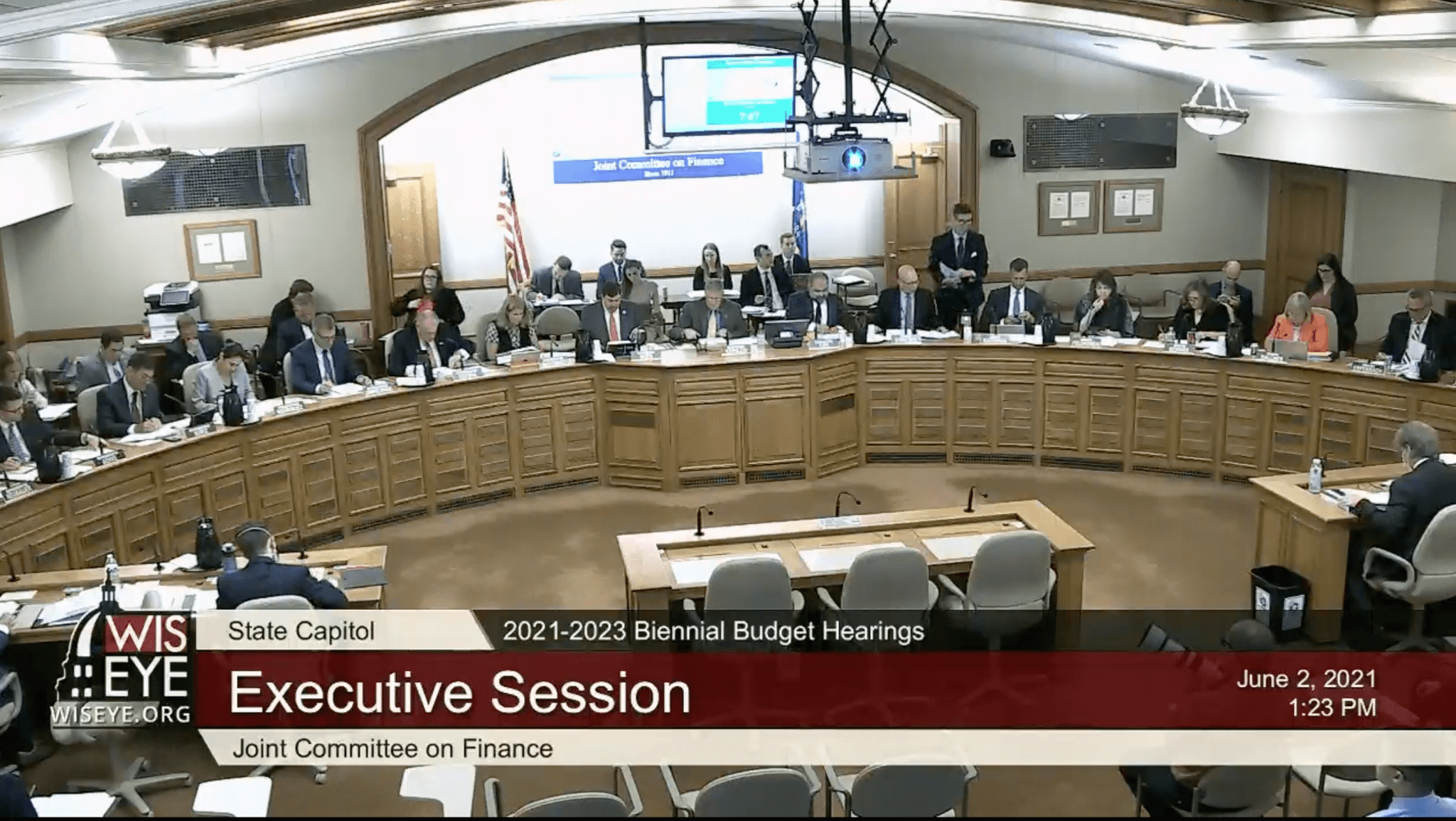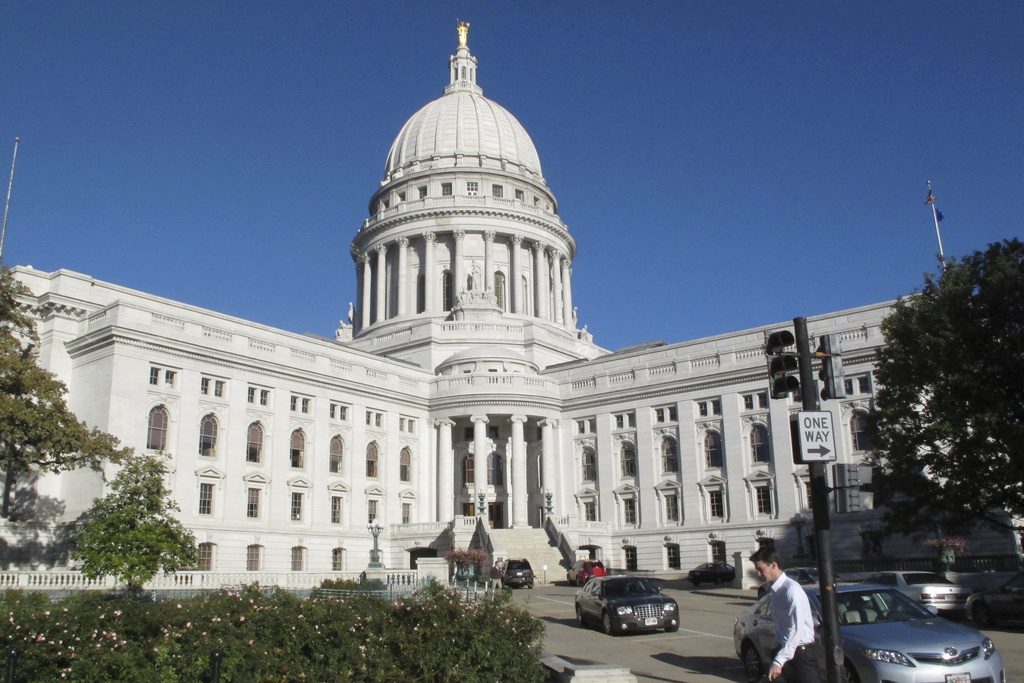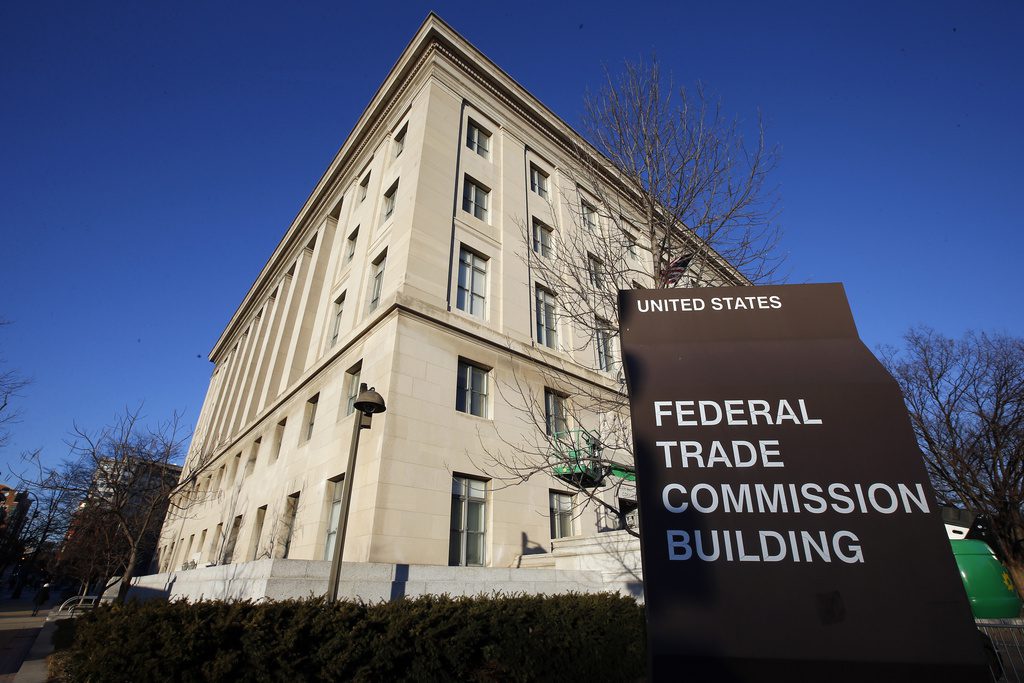
#image_title
#image_title
No lead abatement. No expanded job training. No upgrade to an archaic unemployment system. Republican lawmakers say one-time pandemic relief funds should be used instead.
The list of items Republicans on the Legislature’s Joint Finance Committee said don’t need to be in the next state budget—and could instead be covered by federal American Rescue Plan (ARP) pandemic relief funds—grew significantly longer Wednesday as the majority party continued to reshape what Gov. Tony Evers and Democrats proposed.
On Tuesday, the 12 Joint Finance Republicans voted to remove line items that provided:
- $40 million in forgivable loans for residents to replace lead water pipes
- $28 million to expand workforce training programs
- $15 million to start upgrades to the state’s outdated unemployment system
- $20 million for food pantries to purchase products made in Wisconsin
Last week, those same legislators used the federal ARP funds targeted for Wisconsin school districts as justification to cut requests for additional school funding. It resulted in the US Department of Education warning that such a move would endanger the $1.5 billion in federal funds slated for schools. When asked if that gave them pause about their decision, committee co-chairs Rep. Mark Born (R-Beaver Dam) and Sen. Howard Marklein (R-Spring Green) responded in unison, “No.”
“It keeps getting harder and harder to trust this committee with how we take care of Wisconsinites, especially those who are most vulnerable,” said Sen. LaTonya Johnson (D-Milwaukee), one of the committee’s four Democratic members. “Sometimes I question whether we really get it in this body.”
Joint Finance Democrats in a press statement pointed out that that decision is one of a series of decisions made by their Republican counterparts that have left federal dollars on the table, including:
- $25 million in federal funds for unemployment insurance payments because legislative Republicans did not act quickly enough to remove the one-week waiting period
- $1.6 billion over the next two years for refusing to expand BadgerCare in 2021
- $1.6 billion total since 2013 for not expanding BadgerCare when Medicaid expansion first became available
Legislative Republicans also almost lost the state $70 million a month for the FoodShare program because of their efforts to end Evers’ pandemic-related emergency declarations; those funds were restored once Evers’ administration worked out a compromise with the US Department of Agriculture.
RELATED: Republicans Want to Spend Less on Schools Than Evers Proposes, but Doing So Could Cost $1.5 Billion in Federal Aid
Rep. Evan Goyke (D-Milwaukee) during Tuesday’s hearing lamented all the “missed opportunities”; all the funds being left on the table, as well as all the programs to help the state recover from the pandemic, improve people’s health and wellbeing, and get Wisconsinites back to work.
Born stressed the Republicans’ priority for the Department of Workforce Development’s budget is to “get people back to work.” Rep. Shannon Zimmerman (R-River Falls) talked about how his winery was so short-staffed it had to close on a Saturday; he lamented the state’s “workforce crisis.”
According to seasonally adjusted figures released last week by the Department of Workforce Development (DWD), the state’s April unemployment rate was 3.9%, not much higher than the 3.2% reported in March 2020, the final reporting period before the pandemic caused widespread layoffs.
Assembly Speaker Robin Vos (R-Rochester) has proposed cutting the $300 a month federal unemployment benefit and penalizing people on unemployment who do not show up for job interviews. When asked about such proposals, Evers said he believes the people who are still on unemployment still need that help, and that the best way to address the workforce shortage is to make Wisconsin a more attractive place to live.
Johnson pointed to research reported in Urban Milwaukee that reducing unemployment benefits did not affect the unemployment rate, but it did reduce spending—something that would hurt businesses.
Goyke pointed out that the Republican modification to the budget only requires DWD to conduct a study exploring how to get people back to work, while Evers’ budget proposal included job training and a program to help DWD connect employers with people looking for work.
“[Zimmerman] says, ‘We need to take action,’ then introduces a proposal that does not take action,” Goyke said.
Born said if DWD wanted those programs, the department could use ARP money to fund them.
Sen. Jon Erpenbach (D-West Point) voiced frustration that Republicans, who spent the pandemic throwing stones at Evers for the unemployment system, now did not want to invest in upgrading the system. He pointed out that legislators knew the unemployment system needed to be updated and then during the pandemic their “phones started lighting up.”
“For a brief moment during the pandemic, [Wisconsin] Republicans pretended to care about out-of-work Wisconsinites being able to get access to their [unemployment] benefits ASAP,” Johnson tweeted. “Now, when it’s time to actually fund the fixes for the 1970s era system, they’re heading for the hills.”
Johnson was particularly galled by the cutting of funds for lead pipe removal, which Rep. Tony Kurtz (R-Wonewoc) said could also be addressed using ARP funds. During the last budget session, lead pipe replacement was also removed from the budget because Vos and others said too much of the funding would go to Milwaukee, the state’s largest and most diverse city, which traditionally votes Democratic.
Rep. Greta Neubauer (D-Racine) said the reality is that a lot of communities in Wisconsin have lead pipes. She said an “essential role of government is to make sure people can drink the water from their tap.”
Politics

Biden makes 4 million more workers eligible for overtime pay
The Biden administration announced a new rule Tuesday to expand overtime pay for around 4 million lower-paid salaried employees nationwide. The...

Biden administration bans noncompete clauses for workers
The Federal Trade Commission (FTC) voted on Tuesday to ban noncompete agreements—those pesky clauses that employers often force their workers to...
Local News

Readers Poll: Top Bowling Alleys in Wisconsin
Looking for the best bowling in Wisconsin? Look no further! Our readers have spoken in our recent poll, and we have the inside scoop on the top...

8 Wisconsin restaurants Top Chef judges are raving about
Top Chef’s 21st season is all about Wisconsin, and on-screen, it’s already apparent that the judges feel right at home here. But, while filming in...




